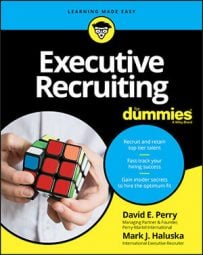Earlier, the role of management used to be to develop procedures for employees to follow to serve the machines that existed at the center of the typical organization. Now, in the new knowledge-based economy, management's job is to cultivate an environment and culture that enables their people to leverage their intelligence and creativity. You achieve this by developing the following within the organization itself:
- Emotional intelligence (EI): It's not just people who display EI. Organizations can, too. In organizations with high EI, employees believe in themselves. Ron Wiens, the author of Building Organizations That Leap Tall Buildings in a Single Bound, explains it this way: "In high EI organizations, people are aware of their emotions and are able to use them to grow their performance (i.e., they do not allow negative self-talk to tear down their belief in themselves)." It's this confidence that enables them to try new things (which in turn, drives innovation). It also reassures them that help is available if things go awry. Simply put, EI is about one's belief in one's self.
- Relationship intelligence (RI): Companies with RI demonstrate caring. This doesn't just make for a happier workplace, however. It also boosts the bottom line. Simply put, caring is the basis of trust. When people trust you, they can speak openly and frankly with you. When people can speak openly and frankly with you, you can solve problems together. And when you can solve problems together, you can leverage each other's creativity and knowledge to build competitive advantage. Like James Autry — who began his career as a publishing executive and went on to write several books on a variety of topics, including leadership in a knowledge economy — once said, "I need to know that you care before I care to know what you know." All this is to say that whereas EI is about one's belief in oneself, RI is about one's belief in others.
- Corporate intelligence: In winning organizations, employees demonstrate corporate intelligence. They are savvy about the ins and outs of your business. Not only do they understand your company's goals and objectives, they believe in them. Indeed, they believe in them to such an extent that achieving them becomes personally meaningful. The bottom line? CI is about one's belief in the organization.
Now more than ever, companies need leaders who can use a common mission to inspire a community of people to operate at peak levels of performance. This has deep implications for which aptitudes and qualities you recruit for, who you hire, and how you lead.

